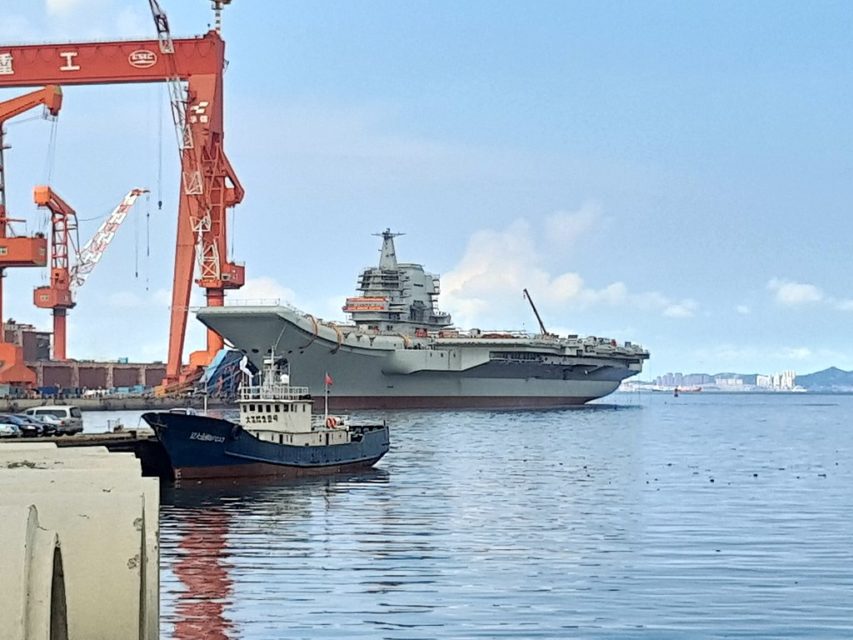China has been quickly adding capabilities and hulls to the PLAN, but a relatively recent change to how larger naval ship command is structured may be a throwback to Soviet Union practices:
When dealing with Chinese navy or coast guard ships, foreign naval commanders have learned to take into account the dual command structure of Chinese crews. In effect, Chinese warships except for smaller (less than 2,000 tons) ones, have dual commanders and a naval command system that is more premeditated and slower to respond to unexpected conditions.
This comes as a surprise to many Western naval officers. Although the Chinese military has achieved many visible signs of modernizing, like new weapons, equipment, uniforms, tactics and officer training, it is still having problems in several key areas. When it comes to leadership there are problems with the political officers.
The Chinese long ago borrowed the concept of the political officer (“Zampolit“) from the Soviet Union. The political officer represents the Communist Party and has the authority to overrule any order a military commander gives. In reality, the political officer usually acts as a combined morale and special events officer. The political officers are primarily responsible for preventing anything happening in their unit that would embarrass the party. For naval zampolits that meant watching out for signs of mutiny or sailors planning to seek asylum in a foreign port.
Unlike the Russian naval zampolit, the Chinese counterpart, called a political commissar is considered the equal of the regular naval commander and his superior when it comes to a “special mission”, like deliberately harassing foreign warships or opening fire on anyone. The political commissar is the same rank as the ship captain and can overrule the ship commander at any time and in any situation. It was not always that way.
An important change took place in 2018 when naval political commissars were given equal authority with the captain as “mission commander” and is expected to replace the captain if the captain is disabled by injury or sickness. The normal second-in-command (the XO or executive officer) becomes the XO for the political commissar and the captain and third, not second, in command. The practical problem with this is that the captain and XO have spent their entire careers (fifteen or more years) learning how to run a ship and supervise the crew. In contrast, the political commissar learned enough tech stuff to be more annoying. The political commissar was a professional busybody, scold and snitch. The political commissar can end the career of the captain, XO or any other officer by simply making a series of uncomplimentary reports.
The 2018 change was part of a program that began in 2016 throughout the military as the CCP (Chinese Communist Party) sought to improve its control over the military. In the navy that meant the political commissar had the ultimate responsibility for achieving goals assigned to a ship. The captain is not the true commander of the ship in the Western sense. He is there to see that technical details are well taken care of and that would include taking change during very bad weather or some kind of technical (fire, explosion) problem aboard ship. The political commissar is expected to personally undertake particularly dangerous leadership missions, although only those he is qualified to deal with. That means political commissars have led boarding parties in dangerous situations but not entrusted with command during damage control situations.
The full impact of the 2016-18 “reforms” to improve CCP control of the military are still working themselves out in the navy. Western, especially American, captains are being warned that their Chinese counterparts will probably not react as quickly to an emergency or unexpected situation that that should be taken into account, or taken advantage of.




